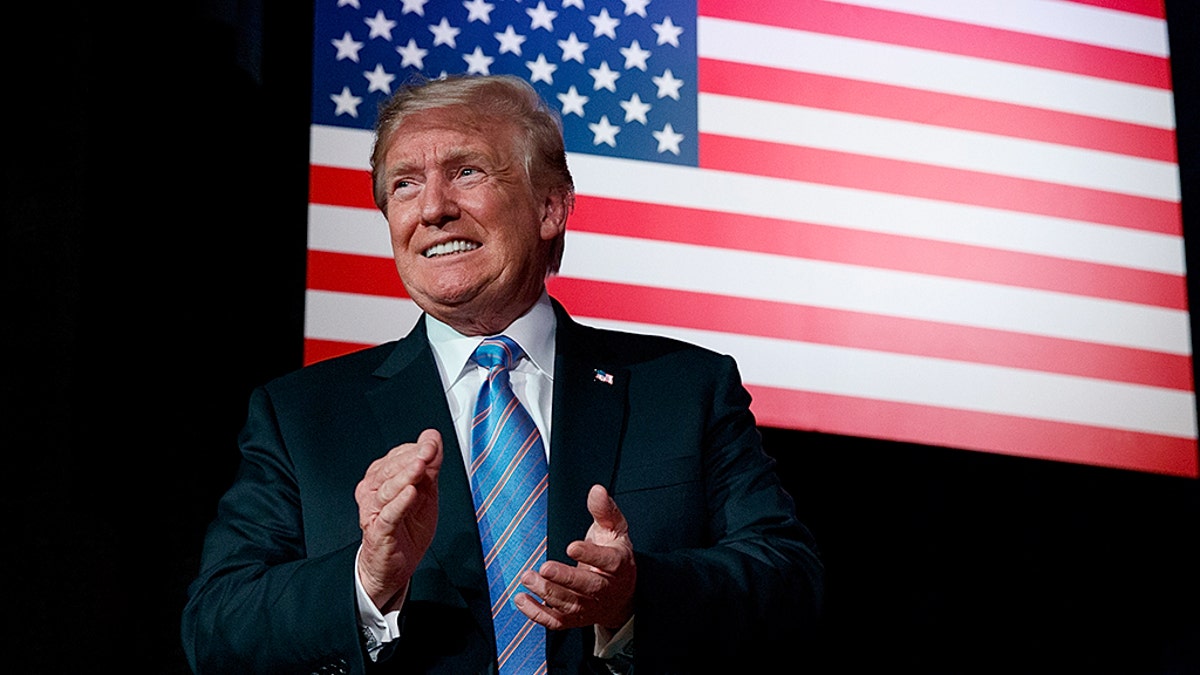
(AP Photo/Evan Vucci)
All of the so-called policy “experts” in Washington, D.C. throw up their hands every time President Trump announces a new round of tariffs. They issue dire warnings about how his stance will undercut our economy. But his hardball tactics are working.
The United States has hemorrhaged middle-class manufacturing jobs for more than a generation thanks to feckless policymakers in Washington who have refused to punish countries and companies that abuse our trade rules. President Trump is reversing that trend by calling out serial violators of international trade law and imposing real penalties to prevent continued abuse.
The new trade deal between the U.S., Mexico and Canada, which is set to be signed on Friday, is President Trump’s hallmark achievement on trade and illustrates the effectiveness of his strategy. By ripping up a legacy trade deal that his predecessor threatened to dismantle (but never actually touched), the president won major concessions from two of our top trading partners, who would have continued benefiting from a one-sided relationship if they hadn’t been forced to negotiate.
The United States-Mexico-Canada Agreement (USMCA) updates the 24-year-old North American Free Trade Agreement (NAFTA) in a way that fundamentally re-balances the trade relationship between the three countries. The deal will benefit American workers across countless industries, including farmers and ranchers who will gain improved access to the Canadian and Mexican markets. Congress should ratify it without delay.
President Trump understands how senseless it is to keep following the old playbook. He campaigned on a pledge to change how the U.S. does business with its trade partners and has followed through on that pledge since taking office.
Once USMCA is finalized and American industries and workers are protected by equitable terms, the president will have another opportunity to boost domestic manufacturing and agriculture by revisiting tariffs on steel and aluminum produced in Canada and Mexico. Doing so would improve the economy by relieving some of the strains on industries that depend on aluminum and steel imports from either country.
The administration can also help alleviate financial pressure on other American businesses that were the victims of retaliation by both countries. For example, Mexico slapped a 20 percent tariff on pork exports from the U.S., hurting American pig farmers who are critical to our agricultural economy. Canada and Mexico have already pledged to withdraw their retaliatory tariffs if the U.S. adds them back to the list of tariff-exempt countries.
The overarching objective of President Trump’s trade fights is to force China to the negotiating table. By improving the terms of other trade relationships, the president is strengthening his leverage for the showdown with China.
That is why it is important to make sure we have deals in place that bring our supply chains back from China to the West. Thus, reexamining tariffs for steel and aluminum produced in Canada and Mexico will ultimately be an important step towards a more fair and balanced trade relationship with China.
Most of the policy wonks who criticize President Trump simply do not understand leverage. For years, they championed the benefits of free trade, arguing that strict adherence to the rules and a consistent message would help us preserve our perch as the world’s top economy.
What they didn’t realize is that other countries were gaming those rules to take advantage of our workers, by producing goods at artificially low prices that American rivals could never match. This resulted in a hollowed-out American industrial class.
President Trump understands how senseless it is to keep following the old playbook. He campaigned on a pledge to change how the U.S. does business with its trade partners and has followed through on that pledge since taking office.
He knows we need to ignore the old rules and start to outsmart the bullies. That is the only way American workers can compete with countries that have been abusing our trade laws.
The ultimate sign of President Trump’s success on trade is that many of his skeptics are starting to embrace his worldview. Even former Treasury Secretary Hank Paulson is rethinking the U.S. approach to China. Others are sure to follow.
President Trump is winning. So is America. His critics may not see that, but that doesn’t matter, because voters do.




















